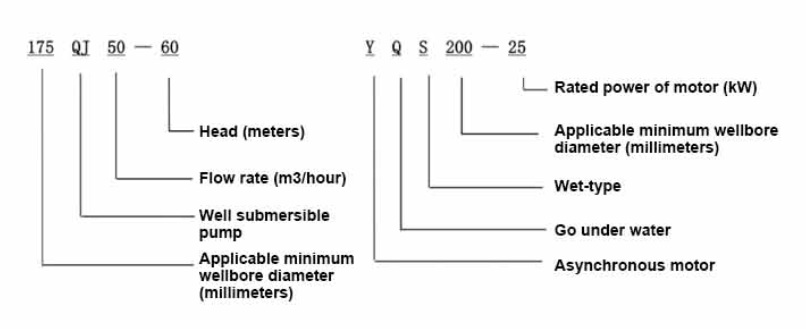Aug . 11, 2024 21:34 Back to list
Durable Submersible Sump Pump Designed for Chemical Resistance and Heavy-duty Performance in Challenging Environments
Understanding Chemical-Resistant Submersible Sump Pumps
When it comes to managing water and other liquids in industrial settings, chemical-resistant submersible sump pumps play a crucial role. These specialized pumps are designed to handle harsh conditions, providing efficient and reliable solutions for dewatering processes in various applications, including manufacturing facilities, chemical plants, and wastewater treatment plants.
What is a Submersible Sump Pump?
A submersible sump pump is a type of pump that operates underwater. The entire pump unit is submerged in the fluid it is pumping, making it highly efficient for eliminating excess water from sump pits, tanks, and other enclosed spaces. Unlike more traditional pumps that can draw water from above, submersible pumps can push water from a lower level, allowing for effective drainage in areas where gravity doesn't aid the process.
The Role of Chemical Resistance
In many industrial environments, the fluids being pumped may contain corrosive chemicals, pollutants, or hazardous substances. Standard pumps may quickly degrade when exposed to such aggressive materials, leading to costly downtime, repairs, and potential environmental hazards. This is where chemical-resistant submersible sump pumps come into play. Made from materials such as stainless steel, polycarbonate, or other specialized polymers, these pumps are engineered to withstand the damaging effects of various chemicals, ensuring longevity and reliability even in the toughest conditions.
Key Features of Chemical-Resistant Sump Pumps
1. Material Composition The most crucial feature of a chemical-resistant sump pump is its construction. Manufacturers select materials based on the specific chemicals the pump will handle. For instance, pumps intended for acidic substances may feature special coatings or seals that protect against corrosion.
chemical resistant submersible sump pump

2. Built-in Safety Features Many of these pumps come equipped with advanced safety mechanisms, such as thermal overload protection and automatic shut-off systems. These features not only prevent damage to the pump but also ensure that safe operating conditions are maintained.
3. Versatility Chemical-resistant submersible sump pumps are designed to handle a variety of applications. From pumping clean water to managing wastewater and handling harsh chemicals, their versatility makes them suitable for a wide range of industries, including pharmaceuticals, manufacturing, and food processing.
4. Energy Efficiency Many modern pumps are engineered to operate with lower energy consumption. This efficiency not only translates to cost savings but also aligns with increasing environmental regulations aimed at reducing industrial energy use.
Applications Across Industries
Chemical-resistant submersible sump pumps are used across numerous industries. In the chemical manufacturing sector, they are essential for transferring and dewatering chemical mixtures safely. For wastewater treatment plants, these pumps help manage effluent while preventing contamination. Additionally, they are invaluable in construction sites where water accumulation poses risks to workers and equipment.
Conclusion
In conclusion, chemical-resistant submersible sump pumps are indispensable tools for industrial operations dealing with corrosive and hazardous materials. Their robust construction, safety features, and energy efficiency make them a reliable choice for managing various fluids in challenging environments. As industries continue to evolve and face more stringent regulations, investing in the right pumping solutions will be crucial for maintaining efficiency, safety, and compliance. Whether you are looking to upgrade your existing systems or are in the market for a new pump, understanding the features and applications of chemical-resistant submersible sump pumps can help in making informed decisions that safeguard both your operations and the environment.
-
Submersible Water Pump: The Efficient 'Power Pioneer' of the Underwater World
NewsJul.01,2025
-
Submersible Pond Pump: The Hidden Guardian of Water Landscape Ecology
NewsJul.01,2025
-
Stainless Well Pump: A Reliable and Durable Pumping Main Force
NewsJul.01,2025
-
Stainless Steel Submersible Pump: An Efficient and Versatile Tool for Underwater Operations
NewsJul.01,2025
-
Deep Well Submersible Pump: An Efficient 'Sucker' of Groundwater Sources
NewsJul.01,2025
-
Deep Water Well Pump: An Efficient 'Sucker' of Groundwater Sources
NewsJul.01,2025
-
 Submersible Water Pump: The Efficient 'Power Pioneer' of the Underwater WorldIn the field of hydraulic equipment, the Submersible Water Pump has become the core equipment for underwater operations and water resource transportation due to its unique design and excellent performance.Detail
Submersible Water Pump: The Efficient 'Power Pioneer' of the Underwater WorldIn the field of hydraulic equipment, the Submersible Water Pump has become the core equipment for underwater operations and water resource transportation due to its unique design and excellent performance.Detail -
 Submersible Pond Pump: The Hidden Guardian of Water Landscape EcologyIn courtyard landscapes, ecological ponds, and even small-scale water conservancy projects, there is a silent yet indispensable equipment - the Submersible Pond Pump.Detail
Submersible Pond Pump: The Hidden Guardian of Water Landscape EcologyIn courtyard landscapes, ecological ponds, and even small-scale water conservancy projects, there is a silent yet indispensable equipment - the Submersible Pond Pump.Detail -
 Stainless Well Pump: A Reliable and Durable Pumping Main ForceIn the field of water resource transportation, Stainless Well Pump has become the core equipment for various pumping scenarios with its excellent performance and reliable quality.Detail
Stainless Well Pump: A Reliable and Durable Pumping Main ForceIn the field of water resource transportation, Stainless Well Pump has become the core equipment for various pumping scenarios with its excellent performance and reliable quality.Detail
